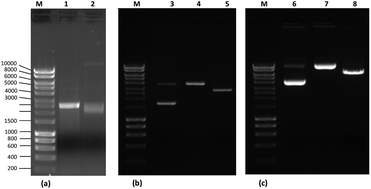
Different plasmind isoforms on agarose gel
Nucleic acids have emerged as a vital tool for targeted gene therapy treatments. In particular, plasmid DNA (pDNA), has become important in pharmaceutical research. Typically, pDNA exists in supercoiled, linear, and open-circular isoforms, and affinity chromatography can separate the supercoiled from these other impurities. Although the capture ligand used in affinity chromatography demonstrates high specificity, it cannot determine the binding strength of the plasmid to the ligand.
Researchers at University of Beira Interior in Portugal measured the binding kinetics of pDNA using surface plasmon resonance spectroscopy (SPR). They successfully calculated dissociation constants for all three types of plasmid isoforms, with supercoiled showing the tightest binding to an affinity chromatography mimic support.
To know more about the study, please read the full article below. It will be free for you to enjoy until April 2nd .
Affinity analysis between immobilized L-arginine and plasmid isoforms provided by surface plasmon resonance
C. Cruz , A. Sousa , F. Sousa and João A. Queiroz
Anal. Methods, 2013, Advance Article
DOI: 10.1039/C3AY40213D










